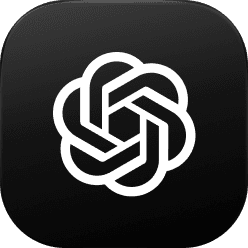ChatGPT Prompt to Write Perfect Storytelling for Your UX Portfolio
Copy Prompt:
Task: Create Compelling UX Project Stories for Portfolios
Objective: Enable UX designers to articulate engaging narratives around their projects, emphasizing the design process, challenges, solutions, and impacts.
Template for UX Project Story:
Title: [Project Title]
Introduction:
- Project Goal: [Brief description of what the project aimed to achieve.]
- Target Audience: [Description of the intended users or audience for the project.]
Role and Responsibilities:
- Role: [Your specific role in the project.]
- Responsibilities: [Key responsibilities and tasks you undertook.]
Process:
1. Research Phase:
- Methods: [Description of research methods used.]
- Key Findings: [Summary of significant insights gained from the research.]
2. Ideation Phase:
- Approach: [Description of how ideas were generated and selected.]
3. Design and Development Phase:
- Design Challenges: [Challenges faced during the design process.]
- Solutions: [Solutions developed to address these challenges.]
4. Testing and Implementation Phase:
- Testing Methods: [Overview of testing approaches used.]
- Feedback Integration: [How user feedback was incorporated into the final design.]
Impact:
- Quantitative Results: [Metrics or data demonstrating the project's success.]
- Qualitative Feedback: [User feedback or testimonials on the project's impact.]
- Personal Reflection: [Your reflections on the project’s impact on your growth as a UX designer.]
Visuals:
- [Suggestions for types of visuals to include, such as wireframes, prototypes, and final designs.]
Conclusion:
- [A summary of the project’s success and its relevance to your goals as a UX designer.]
ChatGPT Prompt to Write Perfect Storytelling for Your UX Portfolio
Copy Prompt:
Task: Create Compelling UX Project Stories for Portfolios
Objective: Enable UX designers to articulate engaging narratives around their projects, emphasizing the design process, challenges, solutions, and impacts.
Template for UX Project Story:
Title: [Project Title]
Introduction:
- Project Goal: [Brief description of what the project aimed to achieve.]
- Target Audience: [Description of the intended users or audience for the project.]
Role and Responsibilities:
- Role: [Your specific role in the project.]
- Responsibilities: [Key responsibilities and tasks you undertook.]
Process:
1. Research Phase:
- Methods: [Description of research methods used.]
- Key Findings: [Summary of significant insights gained from the research.]
2. Ideation Phase:
- Approach: [Description of how ideas were generated and selected.]
3. Design and Development Phase:
- Design Challenges: [Challenges faced during the design process.]
- Solutions: [Solutions developed to address these challenges.]
4. Testing and Implementation Phase:
- Testing Methods: [Overview of testing approaches used.]
- Feedback Integration: [How user feedback was incorporated into the final design.]
Impact:
- Quantitative Results: [Metrics or data demonstrating the project's success.]
- Qualitative Feedback: [User feedback or testimonials on the project's impact.]
- Personal Reflection: [Your reflections on the project’s impact on your growth as a UX designer.]
Visuals:
- [Suggestions for types of visuals to include, such as wireframes, prototypes, and final designs.]
Conclusion:
- [A summary of the project’s success and its relevance to your goals as a UX designer.]
ChatGPT Prompt to Write Perfect Storytelling for Your UX Portfolio
Copy Prompt:
Task: Create Compelling UX Project Stories for Portfolios
Objective: Enable UX designers to articulate engaging narratives around their projects, emphasizing the design process, challenges, solutions, and impacts.
Template for UX Project Story:
Title: [Project Title]
Introduction:
- Project Goal: [Brief description of what the project aimed to achieve.]
- Target Audience: [Description of the intended users or audience for the project.]
Role and Responsibilities:
- Role: [Your specific role in the project.]
- Responsibilities: [Key responsibilities and tasks you undertook.]
Process:
1. Research Phase:
- Methods: [Description of research methods used.]
- Key Findings: [Summary of significant insights gained from the research.]
2. Ideation Phase:
- Approach: [Description of how ideas were generated and selected.]
3. Design and Development Phase:
- Design Challenges: [Challenges faced during the design process.]
- Solutions: [Solutions developed to address these challenges.]
4. Testing and Implementation Phase:
- Testing Methods: [Overview of testing approaches used.]
- Feedback Integration: [How user feedback was incorporated into the final design.]
Impact:
- Quantitative Results: [Metrics or data demonstrating the project's success.]
- Qualitative Feedback: [User feedback or testimonials on the project's impact.]
- Personal Reflection: [Your reflections on the project’s impact on your growth as a UX designer.]
Visuals:
- [Suggestions for types of visuals to include, such as wireframes, prototypes, and final designs.]
Conclusion:
- [A summary of the project’s success and its relevance to your goals as a UX designer.]

